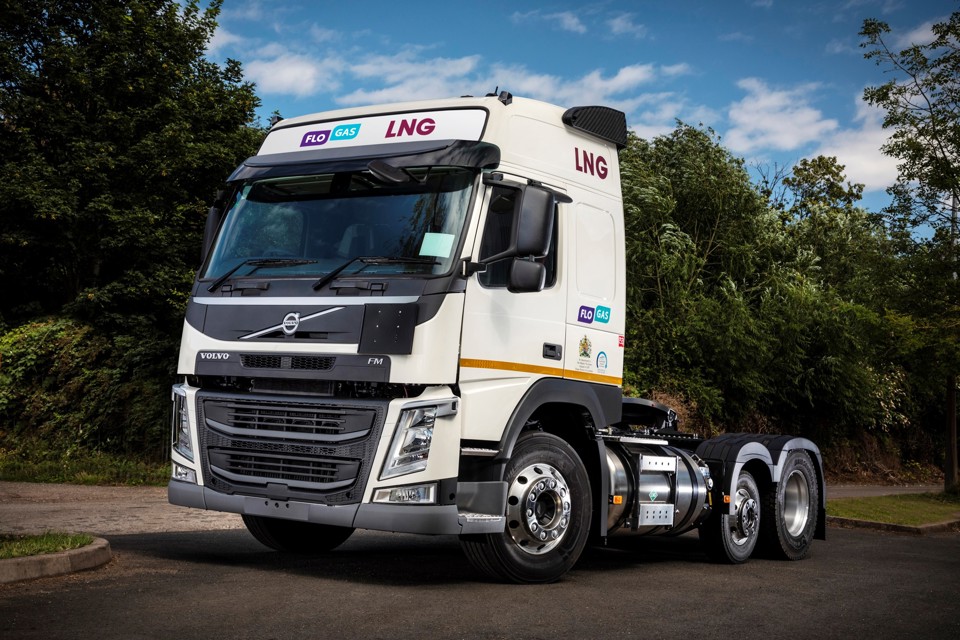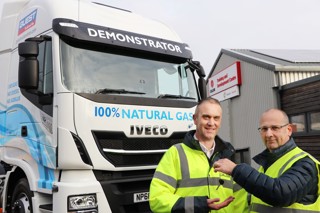LPG and LNG supplier Flogas Britain has added two Bio-LNG powered trucks to its fleet, reducing its carbon emissions by more than 80%.
The Volvo FM tractor units are also expected to provide “significant” cost savings to the fleet.
The new trucks are part of the company’s wider ambition to build a lower carbon future in the UK – as it commits to supply customers with 100% renewable energy solutions by 2040.
“These trucks are just the first of many, as we look to make our 200-strong fleet cleaner, greener and increasingly futureproof,” says Flogas’s newly appointed national account manager for Alternative Transport Fuels James Goodson.
Each truck is powered by renewable Bio-LNG – a highly sustainable biofuel that’s produced during the anaerobic digestion process.
“This means they’ll be 50% quieter; they’ll release significantly fewer pollutants and fuel costs will be far lower,” Goodson added.
Flogas’s delivery network also includes a number of dual fuel and electric hybrid-powered vehicles, as part of long-term plans to grow its fleet of alternatively fuelled vehicles.
“We understand the critical role this fuel will play as we face stringent government targets to tackle carbon emissions and improve air quality. Whilst it’s still in its infancy in the transport industry, the strong environmental and cost-saving benefits compared to conventional fuels, means LNG is set to become the fuel of choice for heavy goods vehicles.
“Hauliers have long faced the challenge of how to reduce their carbon footprint efficiently and cost-effectively. LNG is not just an immediate fix – it’s a long term, reliable solution that makes business sense, and that’s exactly why we’re championing it with our own fleet,” said Goodson.
Flogas opted for the Bio-LNG Volvo trucks following in-depth trials with a number of different manufacturers, where a number of vehicles were put through their paces fulfilling both bulk and cylinder operations.
The 6x2 Volvo Artic trucks produce 460hp and 2,300Nm, they have a tank range of approximately 400-450 miles and are capable of pulling a maximum gross weight of 44 tonnes.





















Login to comment
Comments
No comments have been made yet.